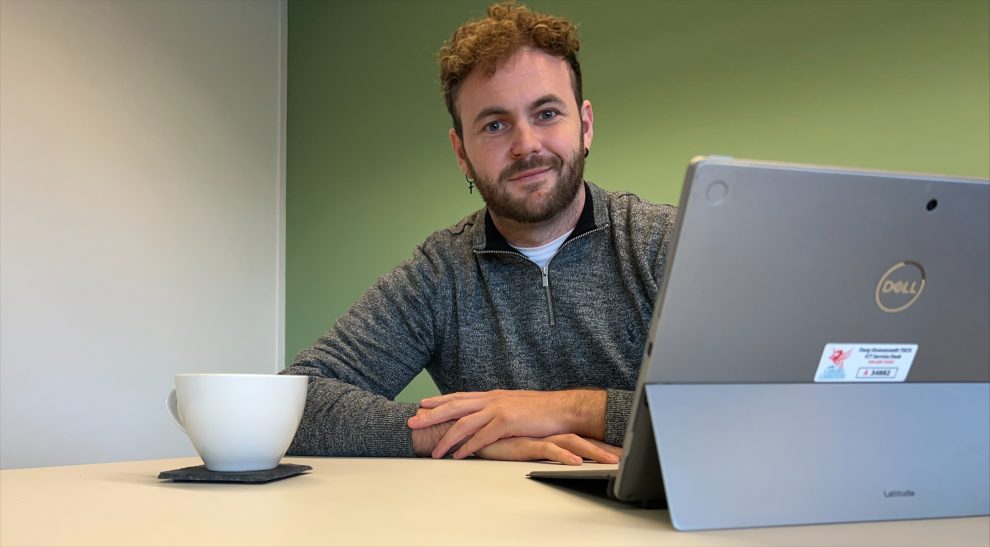A CARDIFF Council cabinet member has opened up on the daily challenge the authority faces with the growing need to accommodate more vulnerable children in the city.
Council data shows that the number of children in residential care in Cardiff has increased by nearly 50% over the past four years.
Many of these children who are in need of accommodation are also being housed outside of Cardiff.
In an interview with the Local Democracy Reporting Service, Cardiff Council’s cabinet member for children’s services, Councillor Ash Lister, said the council partly aims to solve these challenges by purchasing more properties in the city. However, he added that this will not be an overnight fix.

“In terms of the children that are presenting, there are complex needs and I think we have seen more of that since the pandemic,” said Cllr Lister.
“You look at the impact that the pandemic had on children and young people’s mental health, their behaviour, their ability to socialise – it has presented real challenges which are now having more of a knock on.”
The number of children in residential care has increased year on year in Cardiff, going from 109 in 2019/20 to 151 in 2022/23, according to Cardiff Council statistics.
Council figures also show that there are currently 20 residential placements for Cardiff children in the city and 78 placements outside of it.
A focus on bringing in more properties in Cardiff to support children and young people is part of the council’s Children’s Services Strategy. The current plan is to aim for 40 new placements in Cardiff over the next four years.
Council officials said that the authority is already in the process of purchasing two properties in the north of Cardiff.
However, Cllr Lister said housing children outside of Cardiff can sometimes be a case of keeping them closer to their support links, pointing out that if a child in need of accommodation lived in Grangetown, they would be closer to their original home if they were placed in Penarth rather than somewhere on the other side of Cardiff like St Mellons.
He said: “It is about keeping those community links where we can because if you completely remove a child from everything they know, they are open to more risk, they are open to mental health issues, they are open to disengagement from education.
“We present more challenges to them if we can’t keep them closer to home and that is why a lot more effort is being put in now by officers, through the accommodation strategy, to bring that on-line and it is not an overnight fix.
“I wouldn’t want it rushed either. We need to be thorough in what we are doing and it is not just about buildings either. That home is about the workforce that works to support the children and that wider network around it as well.”
However, the solution is not quite as straight forward as it might seem. Aside from the challenge of finding housing, which is something of a nation-wide difficulty at the moment, there is the matter of securing a property that can meet Care Inspectorate Wales (CIW) regulations.
After this, the property needs to be registered with the CIW which is a process that can take up to six months.
Cllr Lister said: “It is about creating that homely environment for them because I think traditionally, if you look to what children’s homes were 30 to 40 years ago, you never tend to get a good description of what they were like.
“If you walk into the homes that we have got right now, and they are homes, you can tell when you speak to the children and young people there that they feel at home, they feel comfortable in the settings they are living in.
“That is aside from the regulation. The regulation is important, it is set up by the Welsh Government and the CIW and we work with CIW to make sure these properties are coming on-line.
“Whilst, yes, it can be time consuming, we are working with them to speed things up where we can.
“We are looking for suitable properties that will match the need of the CIW regulations.”
Cardiff Council revealed in October last year that they were running children’s homes which were not registered by the CIW.
At the time, the council said it was something they had been forced into due to the desperate need for placements and that they were bespoke arrangements set up to provide 24-hour care and support for children.
When asked about children in unregistered care and if it is fair to describe the current situation as a crisis, Cllr Lister said: “It is a national crisis. Local authorities across the UK are facing it and it changes so fluidly because a placement could become available in the next day.
“Whilst they are unregistered, the regulation is still there, the oversight is still there as we have mentioned.
“[Director of Children’s Services at Cardiff Council, Deborah Driffield] and the team have that regular contact and there are regular plans and discussions in place about move on.
“It is just identifying and matching the young people who are in an unregistered [home] into a new provision which does meet the criteria set by CIW and it definitely does fluctuate.”
The number of children being looked after by all 22 local authorities in Wales went up by 1,365 between 2012 and 2022, according to Welsh Government data on Stats Wales.
Cardiff is the authority which is looking after the most children in Wales.
Cllr Lister added: “Some days I would say we are in crisis, but it is a constant battle for the staff and I will give them their due for that because they are putting so much time and effort into this.
“It is not what we want to see either. We want to have those options available, we want to make sure that we can keep children safe from harm at the click of a finger rather than spending that time trying to find a placement that is suitable for them.
“It is definitely a challenge for us. I wouldn’t want to comment on other local authorities to say if we have got a crisis across Wales, but for us it is a challenge on a daily basis, but one that we are working hard to address.”
A preventative approach will also play a key part in reducing the demand for placements according to Cllr Lister.
Cardiff Council’s Right Place Strategy, which is the implementation of North Yorkshire’s No Wrong Door model, provides an integrated service for young people in care or on the edge of care.
Consisting of a support network of residential workers, psychologists, speech and language therapists and police workers, the team aims to prevent children and young people being passed from service to service and the need for further intervention.
Cllr Lister said: “We provide interventions at the right place, at the right time with the right people as well, and it is considering who is the most appropriate person to work with that child and family at which point and just make sure that there is more of a flow in terms of the support that is available.”
On the preventative approach, Cllr Lister added: “I think that is probably something that across Wales we probably need to talk about more.
“It is important that we do talk about the children who do become looked after, but we also consider the circumstances in which they become looked after.”


















